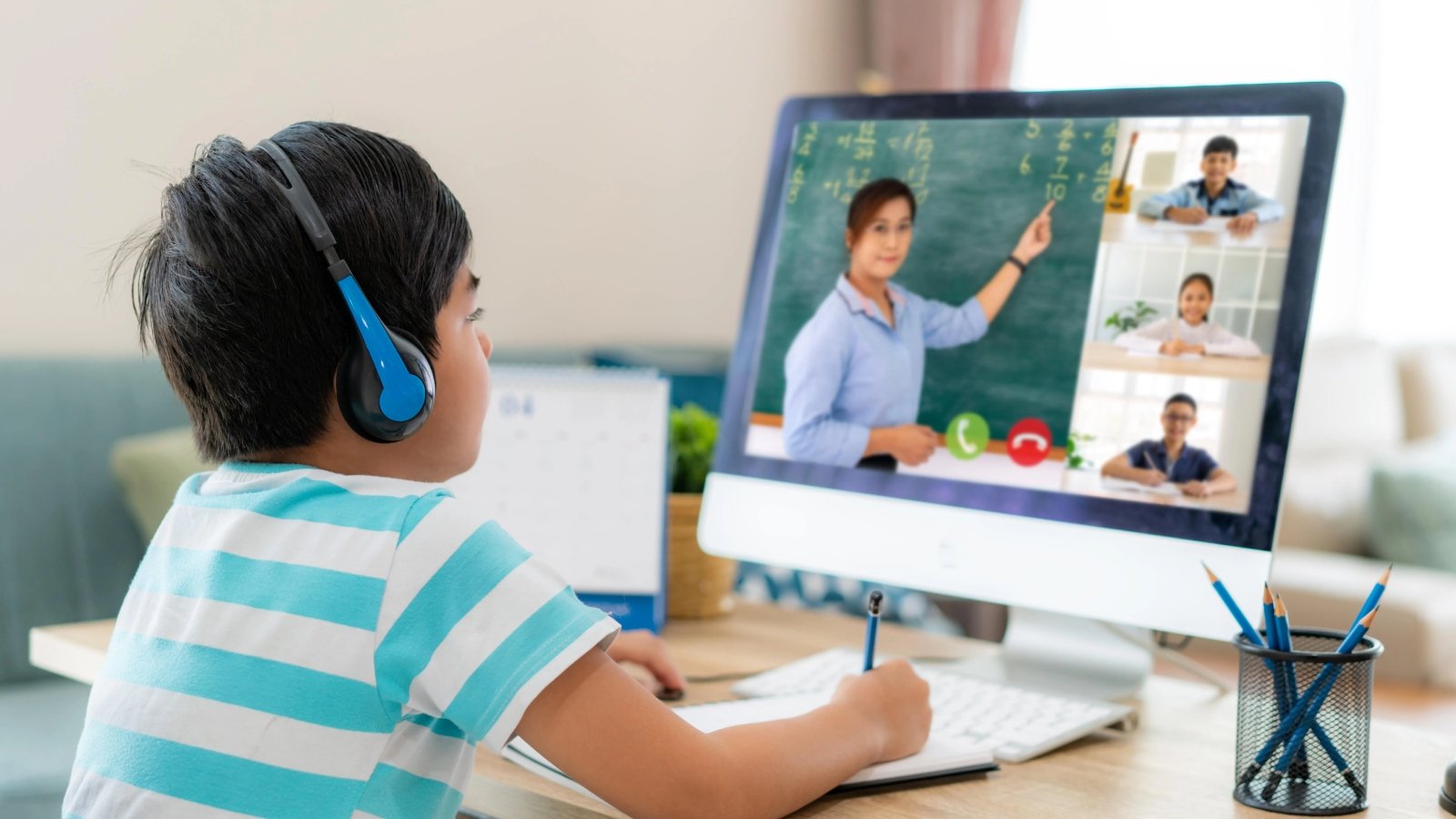Specifications of a Successful Digital Teacher
The successful educational process is based on the successful teacher. The highest focus has been and still is directed at preparing the best teachers to do the noblest task at all, which is education, and working to continuously develop their skills and keep abreast of all developments that can develop education because everything related to building and enhancing the human being is one of the primary priorities in any society that aspires to progress and prosperity in various areas of life.
With the development of technology and the considerable global changes, the educational process no longer requires the presence of the teacher and students in one classroom within a face-to-face school. The education method has become modern, and new roles have been imposed on teachers due to the merger between information technology and education and its traditional ways. So, the individual can learn while sitting at home and follow an appropriate pattern of e-learning, or as it is called, "distance education," commensurate with the circumstances of their life.
As for the teacher, their name has become "digital teacher;" they need more skills than they previously learned to become worthy of distance education and keep pace with the rapid and endless developments that affect all aspects of our lives. What is the mission of the digital teacher? What are the characteristics that make them successful digital teachers and able to achieve the educational goals in the best way? Our current article will answer those questions that have been asked a lot, coinciding with the widespread adoption of e-learning worldwide.
Digital Teacher
They are the people with the capabilities and skills that enable them to teach theoretical and practical subjects within a digital society, without the actual existence of students or by contenting themselves with the student's presence in front of the computer screen and interacting with it only. They play the role of explainer of the materials after integrating their experiences in education with modern technologies. So, they meet the needs of students and motivate them to study, solve homework, accomplish tasks, and research as if they were with them. Therefore, their mission as digital teachers is greater than traditional ones and often more challenging.
Specifications of a Successful Digital Teacher
The digital age imposed on teachers to be equipped with new skills and moved them a little away from their traditional task of teaching information to students, so for digital teachers to be successful, they must do the following:
1. Adequate knowledge
In the past, it was enough for an individual to obtain a university degree in specialization to prove their ability to teach and achieve various educational goals. However, in the digital age, a university degree is not enough knowledge to allow an individual to be a digital teacher; they must prove their competence in using laptops, tablets, and smartphones and have sufficient knowledge of various Internet applications and distance education patterns and strategies. It is necessary to have a certificate that proves their familiarity with all of the above, and of course, this requires a lot of training.
For example, one of the points that a digital teacher must learn is how to present content to students. Personal presentation needs continuous training on how to use and deal with the camera in a way that impacts the scenes. Even a presentation needs good training to be the best presentation. That includes training on inserting an image, mathematical symbols, audio, video, or file, and similar things to explain information to students.
2. Openness and thinking outside the box
As we said earlier, changes and developments are very rapid in the technology field, and there is daily development in a particular matter. Therefore, the distance education process is constantly evolving, and to be a successful digital teacher, one must think creatively, follow all growths, and try to learn all new methods. They must also encourage students to develop, accept all developments, and benefit from them as much as possible because it is in their interest in the first place, as isolation and closure cause the failure of the digital teacher in their profession and also cause the student failure to achieve academic achievement and achieve dreams.

3. Effective Communication
Distance education requires a high ability to communicate effectively with students, especially if digital teaching is direct. The materials are explained by video communication between students and the teacher. The digital teacher should welcome students to build a good relationship with them so they feel confident.
It also requires them to answer the various questions that are asked directly and can communicate with different models. That is because distance education requires the digital teacher to explain their information to diverse student groups from different environments and countries, and they may speak different dialects or languages, unlike what we are accustomed to in schools. Students in the classroom are from the same city, for example, or at least from the same country. The teacher does not find it challenging to deal with them, but here, it is different, and the successful digital teacher's method of communication must be distinct.
4. High Flexibility
Despite the high technology developments, distance education has emergency problems for teachers, such as sudden interruption of sound, absence of image, or loss of a specific search or file. There may be a complete Internet interruption, and communication with students may be permanently cut off until the malfunction or error is fixed.
Therefore, a successful digital teacher must be calm and flexible enough to be patient when a communication problem occurs during the explanation or downloading of lectures and lessons after recording them, and to try to find the best solutions in cooperation with the administration, and preferably to communicate with the administration well and continuously, to be aware of all the problems that occur to be solved in the best way.
5. Adequate Organization
Distance education requires the digital teacher to adequately organize the educational process so that they determine in advance the prime points they will explain and the most appropriate way to discuss that information. That is because making any mistake is considered embarrassing, as the lectures will often be recorded so that the student can return to them and watch them later to get the most benefit from the lessons taught. Undoing mistakes is very difficult; it is best to avoid them through organization and prior training.
6. Permanent Follow-up
The digital teacher must follow up on the questions the students ask. When following the indirect distance education method, if there is no direct contact with the students, then it is not possible to know the questions are on their minds, preventing them from understanding the information provided best. Therefore, the digital teacher must follow the specific means of communication, read the questions, and try to answer as many of them as possible. Try to provide the students with the methods that lead them to answer their questions themselves to prevent the students from falling into a confusion that causes them not to succeed, for example.
7. Time Management
When there is direct communication between the digital teacher and students, the digital teacher must have the ability to manage time. So, they perform their various tasks together, such as explaining information, listening well to students' questions, and providing correct answers within the time allocated for the lesson.

8. Ability to Motivate Students
Sitting in front of a computer screen and following the digital teacher's explanation of theoretical or scientific materials is boring for many students. Therefore, the digital teacher's style must be motivating and attention-grabbing to keep them away from boredom. Instead, it makes them feel fun and attractive to attend more lectures, and this requires the digital teacher to be highly trained and constantly try new things and various methods to communicate information to students.
9. Ability to Complete a Digital Test
Tests in distance education are very different from reality tests, so the digital teacher must practice how to complete a digital test. They can accurately evaluate students and judge the quality of applications and tools used in distance education.
10. Respect the Privacy of Others
The digital teacher deals with students and sees their personal information and data. Therefore, it is necessary to respect the private life of each individual with whom they deal, as is the case in real life, so that they do not act in any way offensive to one who disagrees with their social, political, or other ideas. Instead, they deal in a legal and socially responsible manner so that they do not address contentious issues or engage in conversation with people unrelated to the material being explained.
In conclusion
Technological development has imposed a new type of education using the Internet, and the role of the teacher has become more challenging than before. The highest burden in the educational process always falls on them. Therefore, for the teacher to succeed as a digital teacher, it is necessary to have certain specifications. In addition to earning a degree from a university with a focus, one can learn the most effective ways to use computers and Internet applications.
It is also necessary to obtain a certificate proving their knowledge of distance education strategies. Since the digital education process constantly evolves, the digital teacher must be characterized by creative thinking, open to various changes, and motivate others to accept them.
Despite the massive developments, the digital teacher faces many problems while working. They must deal with them flexibly. They must also organize their information and present it to students in a motivating manner and without wasting time, in addition to their ability to communicate effectively with students to build a strong relationship with them and gain their confidence. All of the above requires patience, calm, and constant communication with the administration to solve the various problems of digital education.